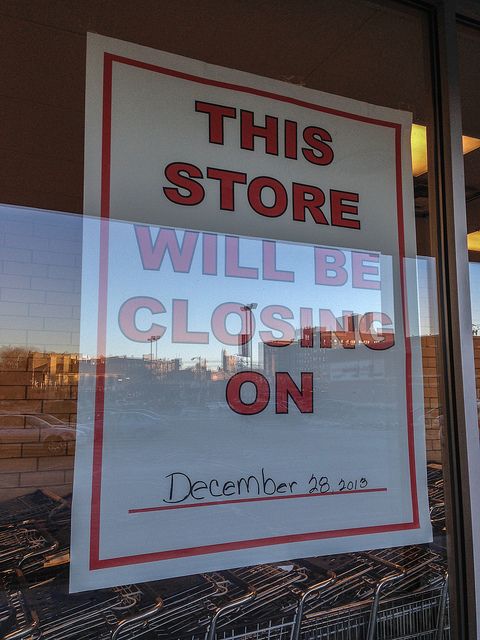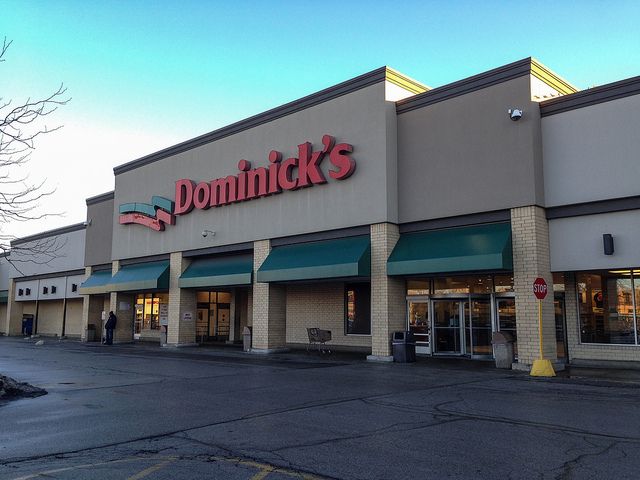At the end of last year, Dominick’s, the popular Chicago grocery chain, closed 57 stores across the metro region. Not only did roughly 6,000 people lose their jobs, but many Chicagoans lost easy access to fresh produce and groceries. Mayor Rahm Emanuel formed a task force to find new tenants for the vacant stores in early December, after Dominick’s parent company, Safeway Inc., announced that it would be closing its Chicago stores.
From the outset, it’s worth mentioning that not all 57 of the shuttered stores are in Chicago proper. Fifteen were within city limits, six of which have been taken over by other chains. But that leaves nine vacant neighborhood grocery stores, from the city’s South Side to the West Loop.
Dominick’s has a long history dating back to 1918 and dominated the Chicago area for years, boasting a peak of 130 stores in the late 1990s. But with the emergence of Trader Joe’s and chains like Mariano’s, Dominick’s lost its share of the market and fled the city.
So Emanuel has assembled 20 leaders and lawmakers, helmed by Deputy Mayor Steve Koch, to handle the fallout.
“The task force’s number-one priority is to get these buildings filled as quickly as possible with grocers or other businesses that nearby residents can continue to depend upon for daily needs, services and jobs,” Emanuel said in a press release last week.

Credit: Eric Allix Rogers
In the wake of the closings, Whole Foods mailed fliers offering discounts to Dominick’s customers, according to the Chicago Sun Times. That’s a nice offering from the Austin organic behemoth, but it won’t bring fresh food back to affected neighborhoods and it certainly won’t recreate 6,000 jobs.
In the meantime, the task force is recruiting both local and national grocers for the nine empty storefronts.
“We’re currently targeting about a dozen local and national grocers, each of which has the capacity to expand into one or more of these locations,” Andrew J. Mooney, commissioner of the Chicago Department of Planning and Development and a member of the task force, said in a release. “We’re making sure they recognize the buying power that’s represented, what public resources are available and how their investment would cater to the needs of area customers.”
There’s clearly a lot of risk, even for a chain with deep pockets, to move into the Chicago market. But as we wrote here just on Tuesday, a grocery store can anchor a neighborhood. It took eight years for Circle Foods, in New Orleans’ Seventh Ward, to reopen after Hurricane Katrina. After years of failed financing efforts, it opened its doors again last Friday, the result of smart policy and public-private partnerships.
Circle Foods was an $8 million renovation because of hurricane damage. Chicago has nine stores, all of which are presumably move-in ready, across neighborhoods where some residents are reeling from the loss of their trusted grocer. If the task force finds the right tenants, whether they’re local or national — Whole Foods has done an admirable job of food education in Detroit — it could pay dividends for residents in the form of both produce and job opportunities.
The Equity Factor is made possible with the support of the Surdna Foundation.

Bill Bradley is a writer and reporter living in Brooklyn. His work has appeared in Deadspin, GQ, and Vanity Fair, among others.
















